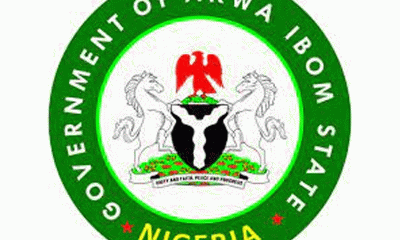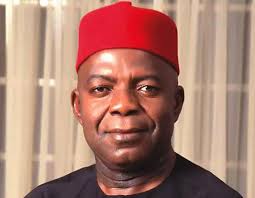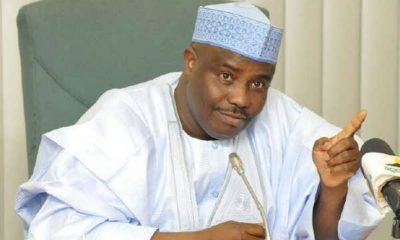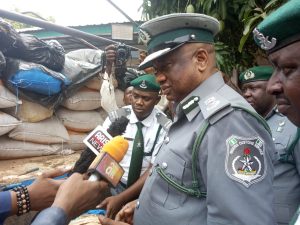COVER
ASUU: Hope Rises as FG Meets VCs, Pro-Chancellors to End Strike
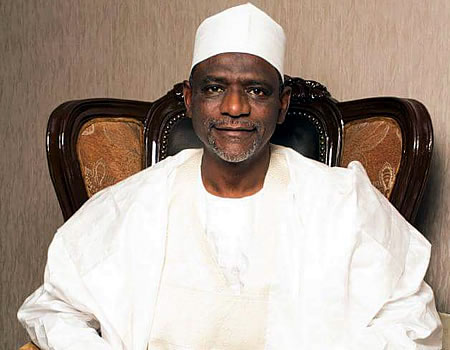
The Federal Government on Tuesday in Abuja met with Vice Chancellors and Pro-Chancellors of federal universities to end the ongoing strike by the Academic Staff Union of Universities (ASUU).
The Minister of Education, Mallam Adamu Adamu, at the meeting, described the indefinite strike by ASUU as an anguish and internal turmoil to him.
Adamu said he wanted the parties to reach an amicable resolution of all the issues contained in the 2009 Agreements because the past two weeks had been a very dark period in the education sector.
“I used to think in a climate of frankness, and with mutual goodwill, an end or solution would have been found to incessant strikes in the education sector.
“This has not been possible or, at least, not as easy and straightforward, as I used to think,” he said.
The minister quoted the President of ASUU, Prof. Emmanuel Osodeke to have said that the union would no longer negotiate with the current administration on the ongoing strike.
He said that that position must be resisted to salvage the country’s educational system.
“Government and ASUU have no option than to continue talking, until our universities are reopened to students who, clearly, are the principal victims of the seemingly unending strike.
“In this circumstances, therefore, all councils and senates of our universities are enjoined to rise up to their responsibilities.
“We must, together, continue to work to restore our public universities to where they are in the 60s and 70s.
“As the most important officers in our university system, Pro Chancellors and Vice-Chancellors, must demonstrate more commitment to ending the ongoing strike,” he said.
He urged the Vice Chancellors and Pro-Chancellors to make it a duty to promote policies and actions that would discourage industrial disputes in our campuses.
He added that the government would continue to support the physical and academic development of its universities as well as enhance the working conditions of all university staff.
At the meeting, Adamu disclosed that the Federal Government was considering an upward review of the salary of tertiary institutions’ lecturers to 23.5 per cent.
The minister said salaries of professors would also be reviewed by 35 per cent.
Adamu disclosed this on Tuesday in Abuja when he presented the position paper of the government during a meeting between the Federal Government, Vice-Chancellors and Pro-Chancellors of Nigerian public universities.
Adamu said that President Muhammadu Buhari had warned against signing agreements which the government would not be able to meet.
“The Federal Government can only afford a 23.5 per cent salary increase for all categories of the workforce in federal universities, except for the professorial cadre which will enjoy a 35 per cent upward review.
“Henceforth, allowances that pertain to ad-hoc duties of the academic and non-academic staff shall be paid as at when due by the Governing Councils of universities to which such services are rendered and to the staff who perform them.
“A sum of N150 billion shall be provided for in the 2023 budget as funds for the revitalisation of federal universities, to be disbursed to the institutions in the first quarter of the year.
“Also a sum of N50 billion shall be provided for in the 2023 Budget for the payment of outstanding areas of earned academic allowances, to be paid in the first quarter of 2023,” he said.
Adamu further disclosed that the four university-based unions, had addressed separate letters to the Chairman of the Government Re-negotiating Team rejecting government’s offer.
He said they described it as inadequate to meet their respective demands.
He also said he met the unions to explain the prevailing economic situation limiting the ability of government to accede to all their demands.
Committee of VCs Appoints Sustainable Peace Negotiation Team
Meanwhile the Committee of Vice Chancellors of Nigerian Universities (CVCNU) has set up a sustainable peace team to resolve the lingering impasse between the Federal Government and the Academic Staff Union of Universities (ASUU).
The former Secretary General of CVCNU, Prof. Michael Faborode, and the Co-coordinator of the team, confirmed this to the News Agency of Nigeria (NAN) in Abuja on Tuesday, through ‘The Sustainable Peace Team Working Paper’.
He said that the desire of the team was not to allow the current deadlock in the ASUU strike negotiations to take hold, as the toll of the strike on all stakeholders and the nation had been colossal.
According to him, to arrive at the final list, no serving vice chancellor or pro-chancellor is included and membership was based on record of service as recorded by the CVCNU.
He said that the team comprised Prof. Jibril Aminu, former Vice Chancellor, University of Maiduguri (UNIMAID); Emeritus Prof. Olufemi Bamiro, former Vice Chancellor, University of Ibadan (UI); Prof. Ekanem Braide, President, Academy of Science; and Dr Nkechi Nwagogu, former Pro-Chancellor, University of Calabar (UNICAL).
Other members of the team are Prof. Joe Ahaneku, former Vice Chancellor, Nnamdi Azikiwe University (UNIZIK); Prof. Fatima Mukhtar, former Vice Chancellor, Federal University, Dutse; and Prof. Akpan Ekpo, former Vice Chancellor of University of Uyo (UNIUYO).
Also in the team are: Prof. Yakubu Ochefu, Secretary General, Committee of Vice Chancellors of Nigerian Universities (CVCNU), and Prof. Michael Faborode, former Secretary General, CVCNU and former Vice Chancellor, OAU.
“We should not fold our hands and watch our ‘house’ collapse on us as elders. So, we should speak or act now.
“We do not have any other industry other than the university system. Whatever can be done to bring all the actors to reason and broker peace using the Prof. Nimi Briggs committee recommendations as the fulcrum, will be worth the effort.
“A lot had been done already and such patriotic efforts should not be wasted nor despised,” he said.
Faborode said that the “Peace Team of Elders” would operate under the auspices of the CVCNU/CPC.
According to him, both the Federal Government and ASUU are being reached to accept the intervention of the independent team of elders.
“The Team will liaise with the Prof. Nimi Briggs committee to understand the basis of the elements of their proposals, and check with both the federal government and ASUU to identify the areas of concern and objection.
“Afterwards the team will brainstorm on how to mitigate the thorny areas and work with all the parties to bring the imbroglio to an amicable end in the interest of all concerned and the nation.
“The meetings and consultations will be mainly online by Zoom and perhaps finally face-to-face to safe costs once we make progress. This is however subject to review as we proceed,” he explained.
Faborode said that the team had itemised some preliminary considerations that could shape parties understanding and way forward.
He said that this was because the deadlock in the crisis seemed to be getting more disturbing with the federal government maintaining a strong stance of “no-work, no-pay” and ordering ASUU to go back to work.
He said this had also made ASUU to firmly prolong the strike to become indefinite as both sides were unwilling to proceed with further negotiation or discussions.
“How do we engage with the Nimi Briggs committee? I am personally in touch with the chairman, and he feels the outstanding issues are not insurmountable.
“These include federal government raising its offer of salary increase from 23% to may be 50% that will ensure a Professor receives up to N800,000 monthly as opposed to the negotiated N1.2 million.
“Also, the review of the decision on salaries during strike to a mid-position, not 0% nor 100% as ASUU wants. How can we further this admonition to both sides?
“Fundamentally, the following facts should be noted: the subsisting condition of Nigerian higher education is unacceptable and inconsistent with the economic development roles envisaged for them.
“Things have been allowed to deteriorate for too long, This, must be halted by all as we embark on an integrated revitalisation agenda in the education sector, in the interest of our economic development,” Faborode said.
He, therefore, called on the National Assembly to play its role in providing a sustainable solution of raising resources/funds for the effective running of the universities. (NAN)
COVER
FG Disburses N5.12bn Pension Arrears to 90,689 DBS Pensioners
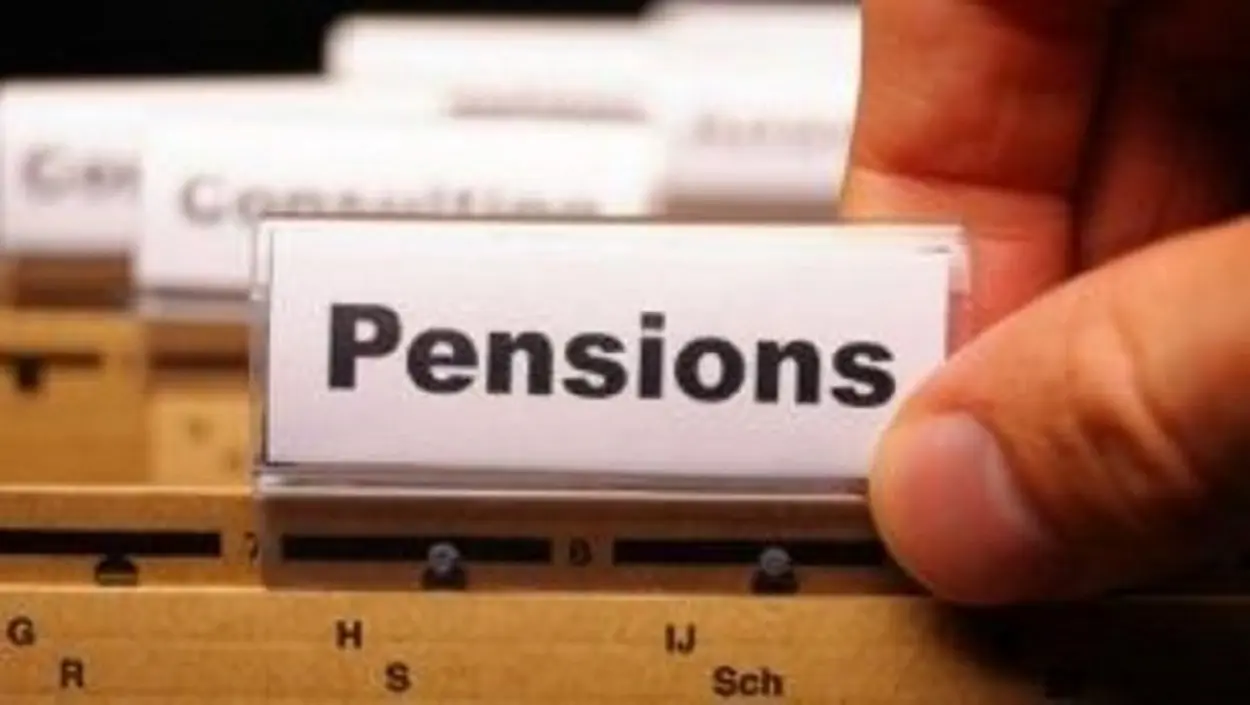
By Tony Obiechina, Abuja
The Federal Government has released funds for the disbursement of N5.12 billion in pension arrears to 90,689 Defined Benefit Scheme (DBS) pensioners under the Pension Transitional Arrangement Directorate.This was contained in a statement by the Head of Corporate Communications of PTAD, Olugbenga Ajayi.
He said that the directorate had finalised the disbursement of the money. The Nigeria Customs Service, the Nigeria Immigration Service, and Prisons Pension Department (CIPPD) pensioners are 8,626, received N276,032, for one-month arrears; the Police, Pension Department (PPD) pensioners are 9,681, received N619,584, for two months as arrears. The Civil Service Pension Department (CSPD) pensioners are 12,773, received N408,736, for one-month arrears, and the Parastatals Pension Department (PAPD) pensioners are 59,609, received N3,814,He said that the payment reaffirms the administration’s commitment to ensuring that pensioners receive their due entitlements in line with the Renewed Hope Agenda of President Bola TinubuAccording to the statement, the approvals align with the President’s Renewed Hope Agenda.“This move shows President Tinubu’s strong commitment to senior citizens’ welfare and marks a new era in DBS pension management,” said PTAD, Executive Secretary, Tolulope Odunaiya.Among the key measures is the immediate implementation of an extra budgetary allocation to enforce new pension rates for DBS pensioners.The President also endorsed the adoption of a proposed pension harmonisation policy, which will be incorporated into the 2026 pension budget. Additionally, health insurance coverage for all DBS pensioners has been approved, ensuring access to essential healthcare services.The proposed reforms include a new pension rate of N32,000 and incremental increases of 10.66% and 12.95% for pensioners from defunct and privatised agencies. Other components of the reform package include harmonisation of pension rates across all DBS pensioners and their enrolment into the National Health Insurance Scheme (NHIS).In June, PTAD announced the successful disbursement of N8.6 billion in pension arrears to 148,625 eligible DBS pensioners across various sectors. The payments reflect the implementation of the N32,000 pension increment approved by President Tinubu in 2024.PTAD had previously settled arrears related to the first pension increment of 20% to 28%, which came into effect in January 2024.COVER
NAF Offensive Decimates 592 Terrorists, Destroys 372 Assets in Eight Months

By David Torough, Abuja
The Nigerian Air Force (NAF) has killed no fewer than 592 terrorists and destroyed 372 enemy assets in Borno within the last eight months, surpassing the total operational gains recorded in 2024.A statement by NAF’s spokesman, Air Commodore Ehimen Ejodame yesterday said the Chief of the Air Staff (CAS), Air Marshal Hasan Abubakar, said this during a courtesy visit to Gov.
Babagana Zulum of Borno. Abubakar said the offensive had destroyed 206 technical vehicles and 166 logistics hubs in deep hostile territory, with coordinated day-and-night strikes from Gonori to Rann, Dikwa to Damboa, Azir to Mallam Fatori.He said the offensive had been boosted by the deployment of A-29 Super Tucano aircraft capable of precision and night missions, Mi-171 helicopters for medical evacuation and logistics, and enhanced intelligence, surveillance and reconnaissance platforms for round-the-clock target tracking.He added that a new Mi-35 gunship was expected to further intensify close-air support for ground troops in the theatre.“Backed by an upgraded fleet and precision night-strike capabilities, NAF aircraft executed 798 combat sorties, clocking over 1,500 operational flight hours in the Air Component of Operation Hadin Kai.“This year, our air war is faster, sharper, and more surgical.“We are taking out high-value targets, crippling their logistics, and hunting down every cell that threatens the peace of the North-East,” he said.The CAS also praised the “Borno Model” of combining community-driven non-kinetic measures with decisive military action, saying it had proven effective in the counter-insurgency campaign.He also inspected facilities at the NAF Base, met with aircrew and ground personnel, and received operational briefings.He reaffirmed the NAF’s commitment to precision air power, intelligence-led operations, and inter-agency collaboration to protect Nigerians.In his response, Gov. Zulum praised the NAF for its sustained air support in degrading terrorist capabilities and protecting communities.According to him, the NAF has been a steadfast partner in their fight against insurgency.“Your operations have saved countless lives and allowed our communities to begin rebuilding.“The people of Borno recognise your sacrifices and stand firmly behind you,” he said.COVER
Over 8,000 Mentally ill Inmates in Custody Nationwide, Says NCoS
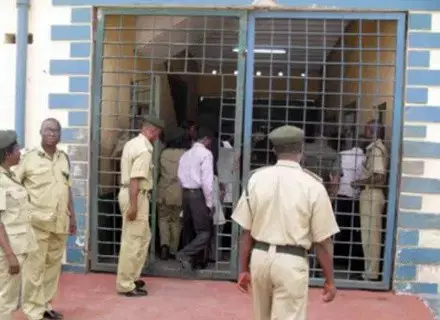
By Divine Ndukwe, Abuja
The Nigerian Correctional Service (NCoS) has disclosed that at least 8,246 inmates across the country’s custodial centres are living with mental health conditions.Assistant Controller General of Corrections in charge of Medical Services, Dr.
Glory Essien, revealed the figures yesterday in Abuja during the third public hearing of the Independent Investigative Panel on Alleged Corruption, Abuse of Power, Torture and Other Inhumane Treatment by the NCoS. Essien described incarceration as a deeply stressful experience, noting that the loss of freedom can trigger or worsen mental health conditions. She explained that inmate-leaders are trained to identify and report cases of psychological distress for early intervention, but available resources remain insufficient.“If you’re in a facility housing 500 to 1,000 inmates, with just one doctor or psychologist, monitoring everyone individually is impossible,” she said, citing logistical and funding challenges that hamper adequate care.Similarly, the NCoS Assistant Controller General in charge of Pharmaceutical Services, Mohammed Bashir, acknowledged that drug shortages and limited staffing remain major obstacles despite government funding.He revealed that a psychological services unit has been established, partnering with psychiatric associations to visit major facilities, though resources still fall short of demand.Permanent Secretary in the Ministry of Interior, Dr. Magdalene Ajani, called for urgent private sector support, stressing the need to deploy more psychiatric professionals to underserved states. “Please come to Macedonia and help us,” she appealed to the Nigerian Medical Association and pharmaceutical companies.Meanwhile, in Kwara State, the Nigerian Medical Association (NMA) has expressed alarm over rising mental health issues among doctors, linking the trend to burnout, workplace violence, and poor working conditions.Kwara NMA Chairman, Prof. Olushola Abdulrahman Afolabi, said a significant proportion of doctors experience depression, anxiety and other psychiatric disorders, often without seeking help due to stigma.Former NMA chairman, Prof. Issa Baba Awoye, warned that current figures could be worse than past studies, especially in resource-poor settings.The NMA is advocating for mandatory mental health evaluations for doctors, alongside increased awareness and stigma reduction campaigns. “Our healthcare system can only be as strong as the mental and physical well-being of those who sustain it,” Afolabi stated.Both the NCoS and NMA agree that mental health care must be prioritized, not just for inmates, but for those tasked with caring for the nation.








